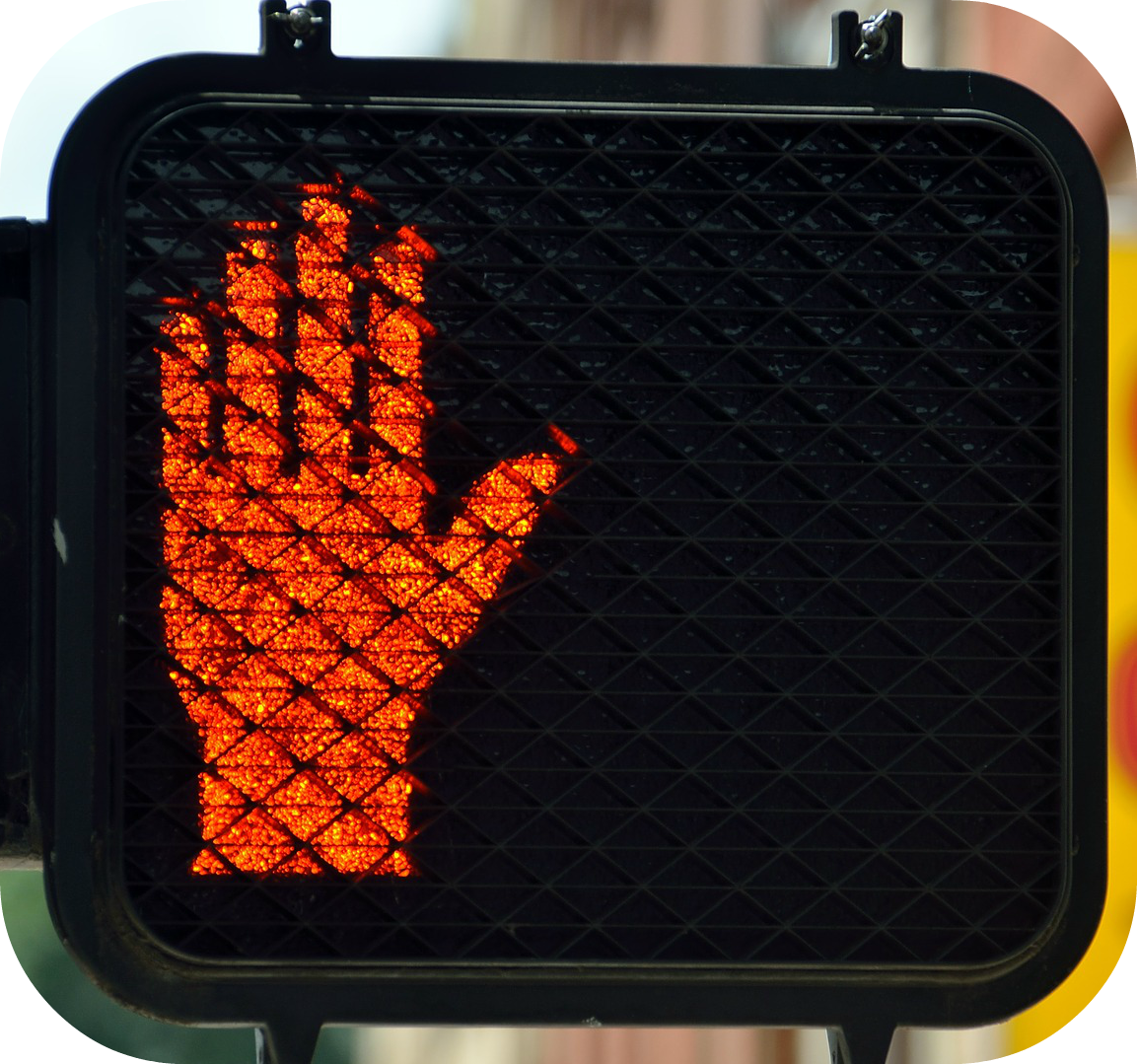April Stewart of Las Vegas Nevada lost her sixteen-year-old daughter, Mary Lilly, in 2015. Mary Lilly was crossing six lanes of traffic at a designated crosswalk when she was struck and killed by a driver—only yards from the curb. The driver stated that they had not seen Mary Lilly crossing the road. Her story isn’t unique, and several hundreds have died on crosswalks in Las Vegas within the past decade. [1]
Earlier this month, a Florida-based personal injury firm, Anidjar and Levine, compiled and compared collision data from each state using data provided by the National Highway Traffic Safety Administration. Their research found that Nevada has the highest ratio of pedestrian deaths within marked pedestrian zones than any other state. Additionally, between 2017 and 2021, over 400 pedestrians were involved in fatal accidents in the state. Almost 200 of these deaths, or almost half (44.8%), occurred in designated pedestrian crosswalks. This means that almost every other fatal pedestrian accident in Nevada occurred when someone crossed the street legally. [2]
In early February the Nevada Office of Traffic Safety reported that thirty-eight people were killed in Nevada crashes in January—thirty-two of them being in Clark County. Of the Clark County deaths, eighteen were pedestrians, nearly double the number of pedestrians killed in January 2022. The following is a breakdown of the statewide January 2024 statistics:
- Thirty-Five Fatal Crashes
- Thirty-Eight total fatalities
- Twelve Motorists
- Six Motorcyclists (all within Clark County)
- Twenty Pedestrians (eighteen fatalities within Clark County)
- One Unrestrained Motorist
- One Bicyclist
- Thirty-Eight total fatalities
This death total represents a 41% increase statewide in fatalities compared to January 2023, and Clark County’s thirty-two deaths is a 68% increase from last year. As is typical, impairment and speeding remain the leading contributing factors to these fatalities. The only areas of improvement seen in Southern Nevada were in bicyclist and unrestrained deaths. [3]
Remedies to Make Pedestrians Safer in Nevada
Lieutenant for Traffic Safety at the Las Vegas Metropolitan Police Department, Daryl Rhoads, acknowledges there is a problem, and like most other Nevadans is concerned and wants to see change. With concern to jaywalkers, Rhoads states that increased enforcement at some of the most dangerous intersections in Southern Nevada has helped curve the rate of jaywalker-involved traffic accidents and deaths.
When it comes to crosswalk deaths, it can feel as though efforts are to no avail. In the period sample for the study above, the LVMPD has made several changes to create better and more visible designations, including flashing crossing lights, raised paths above the road, etc. Despite this, last year nine pedestrians were killed on crosswalks, and one has already died within the first two months of the year. However, all hope isn’t necessarily lost. The LVMPD has increased enforcement of reckless driving through its Metro Racing Apprehension and Intervention Detail.
Additionally, organizations like the UNLV’s Road Equity Alliance Project has stepped in to help the Southern Nevada region, and has conducted research to assist with identifying the areas that need additional markings, as well as identify infrastructure that can help with the reduction of pedestrian fatalities.
Most Dangerous Intersections in Las Vegas
LVMPD also utilized data from December 2023 and all ten command areas to compile some of the intersections with the highest concentration of vehicle and pedestrian collisions in the Las Vegas area:
Downtown Area
- Bonanza and Wardelle
- Eastern and Searles, Eastern and Stewart
- Fourth and Stewart
Enterprise Areas
- Blue Diamond and Jones
- Durango and Warm Springs
- Amigo and Cactus
- Las Vegas Boulevard and Silverado Ranch
- Decatur and Pyle
Convention Center Area
- Koval and Tropicana
- Flamingo and Las Vegas Boulevard
- Harmon and Las Vegas Boulevard
- Dean Marin and Tropicano
- Flamingo and Linq [4]
Summerlin Area
- Flamingo and Ft. Apache
- Charleston and Durango
- Durango and Sahara
The Argument to Switch to a Full Year of Daylight Savings Time
In 2020, the University of Colorado Boulder found that fatal accidents typically spike by 6% in the workweek following “fall back” in November that account for up to thirty additional traffic fatalities annually [5]. The study also found that the further west one lives within their time zone, the higher their risk of being involved in a fatality during this week.
In addition to this study, AAA has also released a study suggesting that motor vehicle accidents, especially those involving bicyclists and pedestrians increase by almost 160% between fall back and spring forward. This is in part because most drivers are unaccustomed to the early evening and fail to realize that pedestrians and bicyclists are still on the road. Additionally, studies also attribute the early sunsets to impacted sleep cycles, fatigue, and thus impacted driving. Fatigued driving can be just as dangerous as driving under the influence. [6]
Daylights Savings time is a federal government regulation set in place by the Uniform Time Act of 1966 which created a uniform daylights savings time to better align the daylight hours with the activities of the general population—ultimately by changing clock times to make sunset/sunrise an hour later in the spring and summer [7].
However, traffic safety advocates have argued of the necessity to switch to a full year of daylight saving (meaning no more changing the clock). A study done in the late 1990’s and early 2000’s by the Association for the Advancement of Automotive Medicine found that within a four-year period, a full calendar year of daylights savings time could reduce car accident deaths by nearly 200 and pedestrian deaths a little over 700. The study found that this possible decrease is in part facilitated by DST substituting evening hour light for morning hour light. Since there is more vehicle/pedestrian activity in the evening than in the morning, it would make sense not to “fall back”, as it comes with the cons discussed above. [8]
Pedestrian Fatalities and Vulnerable Populations
Unfortunately, pedestrian deaths impact those in all walks of life, including those who are more vulnerable like children. The Clark County School District Police Department data from the 2023-2024 school indicates that about 80 students have been killed so far.
This statistic is troubling to Nevadans and lawmakers alike, with Clark County Commissioners holding a meeting in February to discuss safety measures for young pedestrians around school zones. Among those in participation were the parents of students who lost their lives or were severely injured while crossing the street in school zones.
Clark County Commissioner, Michael Naft, and other commissioners unanimously voted to approve the hiring and addition of 84 crossing guards across Clark County middle and elementary schools. Naft believes that this measure can make an impact on the number of fatalities, and having professionals acting as extra eyes and ears for vulnerable groups like children can assist children to cross safely. While the county already spends nearly eleven million dollars on crossing assistance, this additional four million dollars will add the service to nearly twenty-three more schools in the Southern part of Nevada. [9]
[1] https://www.yahoo.com/news/nevada-ranks-1st-highest-percentage-023352563.html
[4] https://www.8newsnow.com/news/local-news/most-dangerous-intersections-in-las-vegas-revealed/
[5] https://www.sciencedaily.com/releases/2020/01/200130144410.htm
[6] https://cluballiance.aaa.com/newsroom/11-01-2019-daylight-saving-time


